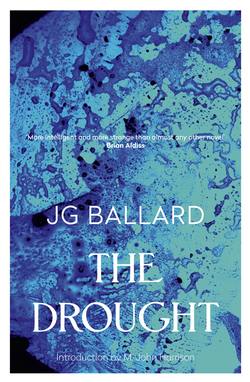Читать книгу The Drought - J. G. Ballard, John Lanchester, Robert MacFarlane - Страница 8
2 Mementoes
ОглавлениеHelping himself to what was left of the whisky in the galley cabinet, Ransom sat down on the edge of the sink and began to scrape away the tar stains on his cotton trousers. Within the next hour he would have to go ashore, leaving the houseboat for the last time, but after a week on board he felt uneager to leave the craft and make all the social and mental readjustments necessary, minimal though these would now be. He had let his beard grow, and the rim of fair hair had been bleached almost white by the sunlight. This and his bare, sunburnt chest gave him the appearance of a seafaring Nordic anthropologist, standing with one hand on his mast, the other on his Malinowski. Although he gladly accepted this new persona, Ransom realized that it was still only notional, and that his real Odyssey lay before him, in the journey by land to the coast.
None the less, however much the role of single-handed yachtsman might be a pleasant masquerade, the houseboat seemed to have been his true home for longer than the few months he had owned it. He had seen the craft for sale the previous winter, while visiting a patient in the yacht basin, and bought it almost without thinking, on one of those gratuitous impulses he often used to let a fresh dimension into his life. To the surprise of the other yachtsmen, Ransom towed the craft away and moored it on the exposed bank below the motor-bridge. The mooring was a poor one at a nominal rent, the stench of the fish-quays drifting across the water, but the slip road near by gave him quick access to Hamilton and the hospital. The only hazards were the cigarette ends thrown down from the cars crossing the bridge. At night he would sit back in the steering well and watch the glowing parabolas extinguish themselves in the water around him.
Looking at the contents of the cabin as he sipped his drink, Ransom debated which of his possessions to take with him. The cabin had become, unintentionally, a repository of all the talismans of his life. On the bookself were the anatomy texts he had used in the dissecting room as a student, the pages stained with the formalin that leaked from the corpses on the tables, somewhere among them the unknown face of his surgeon father. On the desk by the stern window was the limestone paperweight he had cut from a chalk cliff as a child, the fossil shells embedded in its surface bearing a quantum of Jurassic time like a jewel. Behind it, the ark of his covenant, stood two photographs in a hinged blackwood frame. On the left was a snapshot of himself at the age of four, sitting on a lawn between his parents before their divorce. On the right, exorcizing this memory, was a faded reproduction of a small painting he had clipped from a magazine, ‘Jours de Lenteur’ by Yves Tanguy. With its smooth, pebble-like objects, drained of all associations, suspended on a washed tidal floor, this painting had helped to free him from the tiresome repetitions of everyday life. The rounded milky forms were isolated on their ocean bed like the houseboat on the exposed bank of the river.
Ransom picked up the frame and looked at the photograph of himself. Although he recognized the small, square-jawed face of the child on the lawn, there now seemed an absolute break of continuity between the two of them. The past had slipped away, leaving behind it, like the debris of a vanished glacier, a moraine of unrelated mementoes, the blunted nodes of the memories that now surrounded him in the houseboat. The craft was as much a capsule protecting him against the pressures and vacuums of time as the steel shell of an astronaut's vehicle guarded the pilot from the vagaries of space. Here his half-conscious memories of childhood and the past had been isolated and quantified, like the fragments of archaic minerals sealed behind glass cases in museums of geology.
